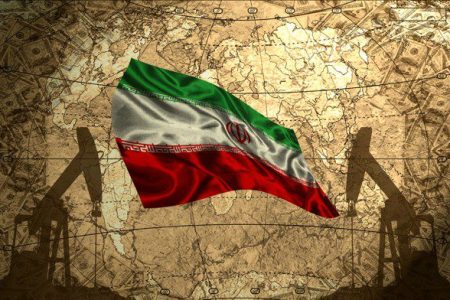 Five Dimensions Consultants specialise in analysing the politics, language, economics, history and religion of individual countries in the Middle East to create a comprehensive understanding of the whole economic and geopolitical picture of the Middle East. The consultancy’s goal is to enable organisations to navigate the Middle East region, post Arab Spring, in the fields of the energy market or emerging economic and geopolitical challenges.
Five Dimensions Consultants specialise in analysing the politics, language, economics, history and religion of individual countries in the Middle East to create a comprehensive understanding of the whole economic and geopolitical picture of the Middle East. The consultancy’s goal is to enable organisations to navigate the Middle East region, post Arab Spring, in the fields of the energy market or emerging economic and geopolitical challenges.
Five Dimension’s latest report focuses on Iran. Speaking about the report, Rosi Kern, Director of Analysis & Business Development, said “At Five Dimensions we employ highly qualified professionals with impressive experience in many fields, including diplomacy and foreign affairs, petrochemicals and energy sectors, financial services, global charitable work and strategic security. To compile our inclusive report on Iran, one of our experts spent 3 weeks in the country at a grass roots level speaking with a wide variety of high-level personnel, including former government officials.
“The unique vantage point of our study provides a rounded report that offers precise knowledge and information to companies seeking to expand their operations in the country, helping them effectively navigate Iran’s political and economic situation.”
Iran features heavily in global news headlines, often with an emphasis on the inter-ethnic strife within the country and friction with neighbouring countries such as Afghanistan and Iraq. The report highlights these issues as situations that look to remain the same for the foreseeable future, with little hope for improvement, saying that as Iran is adjacent to two countries classified as semi-failed states the situation will remain fragile.
While Iran’s population is ethnically, linguistically and religiously diverse, Shia Islam remains the dominant religion and traditional and ethnic and religious identities remain strong. This is in spite of the development of an urbanised professional middle class. Five Dimensions highlight rampant inflation and unemployment as being among the main sources of discontent in the country, encouraging a desire for political reform. However, the study also states that following Supreme Leader Khamenei’s brutal suppression of the 2009 revolt and the subsequent repressive measures of the regime appetite for further protests has been significantly decreased.
As a result, the report predicts that Iran will remain fairly politically stable as long as Khamenei is in power, sighting the most critical challenge to this stability as succession. Supporting the notion of stability, however fragile, is the report’s finding that President Rohani has so far been well received by the public. Based on this, the risk for renewed domestic turmoil remains low.
The controversy surrounding Iran’s nuclear programme is something that has been well documented by news centres around the world. This controversy has resulted in Iran becoming “internationally isolated”, making the country’s relations with the West and Gulf Arab states becoming troubled. The report studied the effect that the nuclear interim deal between Iran and the West made in 2013, and found that there was a feeling of hope that relations between the two could be repaired. However, there is a constant risk that impending nuclear negotiations are likely to fail, with hardliners from both sides determined to hamper talks.
 The main industry to draw attention from international companies seeking to explore the Iranian market is the oil and gas industry. With the recent appointment of a new Minister of Petroleum, Bijan Zanganeh, the industry in Iran is going to see significant changes. According to the report, Zanganeh is keen to provide better incentives for foreign investors while revising existing contracts. Based on their interviews in Iran, Five Dimension researchers concluded that he is “a man of high integrity who does not accept acts of corruption or bribery”. This poses a promising future for growth in the industry.
The main industry to draw attention from international companies seeking to explore the Iranian market is the oil and gas industry. With the recent appointment of a new Minister of Petroleum, Bijan Zanganeh, the industry in Iran is going to see significant changes. According to the report, Zanganeh is keen to provide better incentives for foreign investors while revising existing contracts. Based on their interviews in Iran, Five Dimension researchers concluded that he is “a man of high integrity who does not accept acts of corruption or bribery”. This poses a promising future for growth in the industry.
Oil facilities in Iran have been the target of militant, separatist groups in the past, and the longer the war in Syria continues the more likely it is for similar attacks in Iran in the near future. However, the report states that the security of the energy sector is a top government priority, and the industry is protected at the highest level of power.
As militant attacks on the oil industry demonstrate, Iran does face terrorism threats. Although the threat level is currently categorised as mild, al-Qeada affiliated groups are reaching out to Iran’s ethnically driven militant, separatist groups. This means that the risk of terrorist attacks may rise in the next 6 to 12 months.
As well as terrorism, another growing threat in Iran is the increasing political and economic influence of military and security forces, such as the IRGC. This poses an increasing challenge that the political elite are currently seeking to bring under control. The IRGC also threatens the efforts of foreign businesses trying to access the Iranian market. Corruption among officials at all levels is a persistent problem, and foreign companies need to be especially aware of the IRGC’s potential to derail agreements if its demands are not met.
When considering business options, companies also need to be aware that organised crime is a major issue, with narcotics trafficking, oil smuggling and human trafficking on the rise. Iran also suffers tremendous environmental problems, particularly air pollution that can cause health problems in major cities. In addition, water shortages and desertification may produce issues of food security in the long-term future.
Overall, the Five Dimensions report was able to draw several conclusions and recommendations for investors, including the following:
- Foreign companies should closely monitor political events and dynamics in Iraq and Syria as they have the potential to intensify sectarian conflicts that in the long run can embroil the wider region.
- Foreign companies are recommended to establish ties and to entertain amicable relations with the IRGC to ensure that their companies’ interests do not collide with that of the IRGC.
- Foreign companies biding for projects in the Iranian oil industry are strongly recommended not to engage in bribery as, according to high-level contacts, this could backfire badly and ruin business continuity in the long-term.
- Iran’s current minister of petroleum is a very different negotiator than his predecessor and has different plans for the extractive industry.
You can access the full report by contacting Rosi Kern via email at rosi@fived.org and for more information about Five Dimensions Consultants, visit their website.













